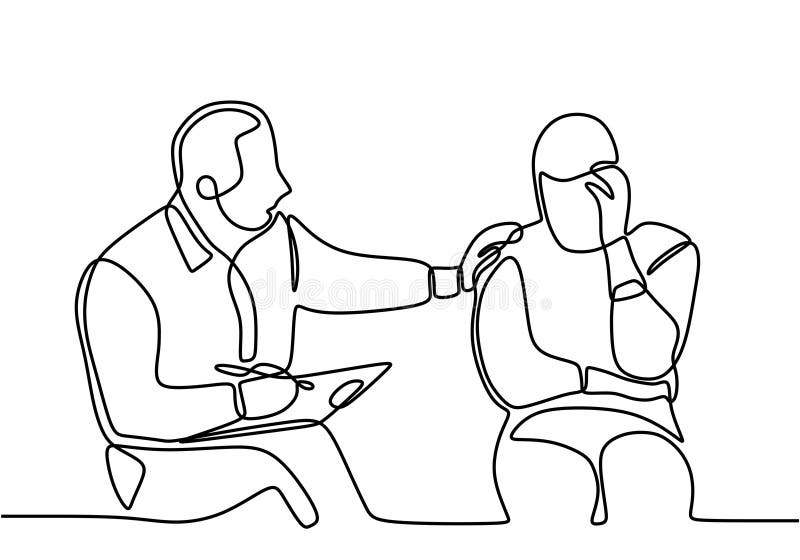Leading Factors to Consult the Best Psychologist in Delhi for Your Emotional Wellness
Leading Factors to Consult the Best Psychologist in Delhi for Your Emotional Wellness
Blog Article
Psych Treatment: A Comprehensive Guide to Techniques and End Results

Cognitive-Behavioral Therapy
Cognitive-Behavioral Therapy (CBT) is a commonly utilized psychotherapeutic technique that concentrates on identifying and modifying useless thinking and behavior patterns. Developed in the 1960s by Aaron T. Beck, CBT combines behavioral and cognitive concepts to deal with various psychological health and wellness concerns, consisting of depression, stress and anxiety, and stress-related problems.
CBT is characterized by its structured, ambitious nature. Treatment typically involves a collective procedure between the therapist and client, where specific problems are identified, and practical approaches are established to address them. Methods such as cognitive restructuring, direct exposure treatment, and skill-building exercises are commonly used. Cognitive restructuring entails difficult and modifying unfavorable thought patterns, while exposure therapy intends to minimize anxiety and anxiety with steady direct exposure to been afraid things or circumstances.
Evidence-based study supports the effectiveness of CBT for a wide variety of mental problems - Best Psychologist in Delhi. Its emphasis on skill purchase and self-help methods equips clients to continue progress independently after treatment concludes. The versatility and performance of CBT have made it a foundation in modern psychotherapeutic practice
Psychodynamic Methods
Rooted in the early concepts of Sigmund Freud, psychodynamic strategies concentrate on exploring the unconscious mind and its influence on habits and emotions. These techniques intend to discover hidden thoughts and feelings that might be driving maladaptive actions and emotional distress. Central to this strategy is the concept of internal problem, frequently coming from unsettled previous experiences, specifically those from youth.
Therapists utilizing psychodynamic techniques employ several essential methods, including free organization, where people are urged to talk easily to expose unconscious product, and desire analysis, which interprets the hidden content of desires. In addition, the exploration of transference and countertransference characteristics within the restorative connection is essential. These interactions can provide understandings into the client's internal globe and relational patterns.
Psychodynamic therapy is typically longer-term compared to various other techniques, offering a detailed and deep understanding of the individual's subconscious. Study indicates that it can be especially effective for complicated mental health issues, such as individuality disorders and persistent anxiety. By fostering self-awareness and psychological understanding, psychodynamic therapy seeks to bring subconscious material to awareness, enabling people to achieve significant and lasting modification in their lives.
Humanistic Techniques
Structure on the foundations laid by psychodynamic techniques, humanistic techniques use a distinct point of view concentrated on individual prospective and self-actualization. Coming from the mid-20th century, these techniques prioritize the integral goodness and growth possibility of people, emphasizing an alternative sight of Homepage human experience. Key figures such as Carl Rogers and Abraham Maslow have dramatically affected this therapeutic method, which includes approaches like client-centered treatment and Gestalt treatment.
Client-centered treatment, developed by Rogers, plays a critical function in humanistic methods. It relies upon the specialist providing an environment of unconditional positive regard, empathy, and congruence. This promotes a risk-free area for clients to discover their sensations and experiences without judgment, promoting self-discovery and individual development. The specialist's duty is even more of a facilitator than an authority, motivating clients to harness their inner resources for healing.
Gestalt treatment, an additional essential humanistic method, highlights present moment awareness and the integration of body and mind. By concentrating on the "present moment," clients obtain higher insight into their existing feelings and actions. Strategies such as role-playing and led visualization are usually used to assist clients obtain a deeper understanding of themselves, ultimately bring about improved self-awareness and fulfillment.
Integrative Treatments
Integrative therapies stand for a synthesis of different restorative methods customized to satisfy the unique demands of each client. This approach recognizes the intricacy of human psychology and the complex nature of mental health problems. By combining aspects from different institutions of psychiatric therapy-- such as cognitive-behavioral treatment (CBT), psychodynamic treatment, and humanistic methods-- integrative treatments provide an even more flexible and all natural therapy paradigm.
Experts of integrative therapy examine each customer's particular demands, symptoms, and personal background to design a customized treatment strategy. This customized approach improves the capacity for restorative success by addressing the source of emotional distress and promoting general health. Techniques might include mindfulness workouts, cognitive restructuring, and psychological handling, each picked to target different aspects of the client's problems.
Additionally, integrative treatments highlight the healing partnership, watching the client-therapist bond as a crucial element of effective treatment. This relationship fosters a supportive environment where customers really feel secure to check out and resolve their worries. The versatility of integrative therapies makes them suitable for a wide series of problems, consisting of anxiousness, anxiety, trauma, and interpersonal troubles, consequently boosting their applicability and efficiency in diverse professional setups.
:max_bytes(150000):strip_icc()/counseling-at-home-1141304093-55910fb2ea804aaa88b4951669d38957.jpg)
Gauging Therapy Results
Examining the performance of psychiatric therapy is important for both clinicians and customers to make sure that the therapy is producing the wanted outcomes. To accomplish this, numerous methods and tools are utilized to gauge therapy results methodically. Standardized assessment instruments, such as the Beck Anxiety Stock (BDI) and the Generalized Anxiousness Problem 7 (GAD-7), offer quantitative data on sign extent and changes over time.
In addition to standardized tools, qualitative techniques like client self-reports and scientific meetings use beneficial understandings right into the individual experiences and regarded progression of customers. Regularly set up evaluations, generally at the beginning, omphalos, and end of therapy, help in tracking the trajectory of renovation or recognizing locations needing modification.
End result dimension is not limited to symptom reduction; it additionally incorporates practical enhancements in life, such as better social partnerships, boosted work productivity, and boosted total wellness. Modern developments in digital wellness have actually introduced mobile applications and on the internet platforms that promote real-time tracking and feedback, better fine-tuning the assessment procedure.
Ultimately, a thorough technique to measuring treatment outcomes makes certain that restorative interventions work, reliable, and tailored to satisfy the individual demands of clients, consequently optimizing the total therapeutic experience.
Verdict
Humanistic strategies concentrate on individual development and self-actualization, while integrative treatments incorporate numerous approaches for pop over to these guys customized therapy strategies. check my reference Reviewing treatment results with standard evaluations and qualitative techniques makes certain a thorough understanding of performance, inevitably directing clients towards sustaining psychological wellness enhancements.
From the structured method of Cognitive-Behavioral Therapy (CBT) to the deep exploration of the subconscious in psychodynamic treatment, each technique brings distinct benefits. Its focus on skill purchase and self-help techniques empowers customers to continue progress individually after treatment concludes (Best Psychologist in Delhi). Trick numbers such as Carl Rogers and Abraham Maslow have significantly affected this restorative method, which encompasses approaches like client-centered treatment and Gestalt therapy

Report this page